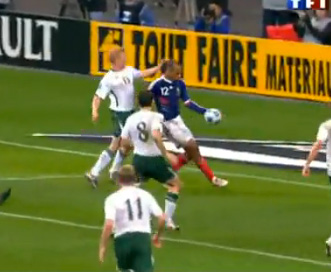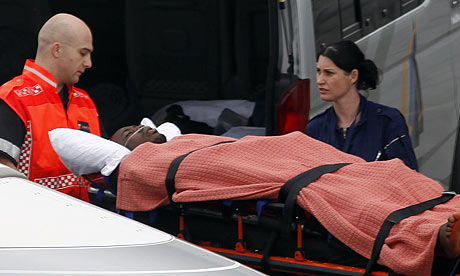
The Confederation of African Football (CAF) banned Togo from the next two African Nations Cup tournaments and also imposed a $50,000 fine. “This decision is outrageous,” said Togo captain and Manchester City striker Emmanuel Adebayor to the French newspaper L’Equipe on Sunday.
Togo returned home from the Nations Cup two days before the kickoff after two members of its delegation were killed in a terrorist attack on January 8 in Cabinda. CAF’s reason for punishing the victims is that it views the Togolese government’s decision to recall the team as ‘political interference’ in football affairs. The Togolese government intends to fight what it called the ‘insulting’ sanctions.
Author: Peter Alegi
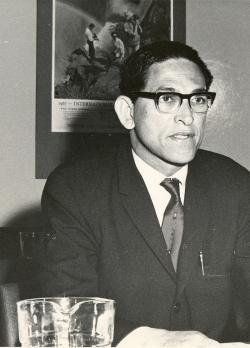
It is with immense sadness that we mourn the passing of Dennis Brutus, African activist and award-winning poet. The South African sport boycott owed much to his fierce commitment and relentless organizing, from his founding of the Coordinating Committee for International Recognition in Sport (1955) to the South African Sports Association (1958) and its successor, the South African Nonracial Olympic Committee. Dennis connected sport with the quest for human rights in powerful and probably unprecedented ways. Thanks largely to SANROC and its international allies, racist South Africa was expelled from the Olympics and world football. These global indictments of apartheid were huge and often undervalued milestones in the struggle against apartheid. Rest in peace Dennis. Hamba kahle.
Read Patrick Bond’s obituary here.
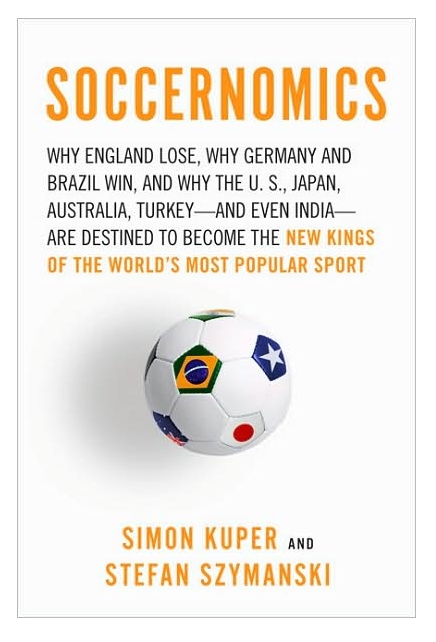 Stefan Szymanski, Director of the MBA program at Cass Business School in London and co-author of the new book Soccernomics, said on SAfm that the 2010 World Cup may turn out to be a ‘shocking waste of South Africa’s resources’ and not the economic ‘bonanza that government and Fifa would have us believe’. According to Szymanski, the only benefit that SA will reap from the tournament is a ‘feel-good factor’.
Stefan Szymanski, Director of the MBA program at Cass Business School in London and co-author of the new book Soccernomics, said on SAfm that the 2010 World Cup may turn out to be a ‘shocking waste of South Africa’s resources’ and not the economic ‘bonanza that government and Fifa would have us believe’. According to Szymanski, the only benefit that SA will reap from the tournament is a ‘feel-good factor’.
Read the full story here.
South African Sport, Hollywood-style
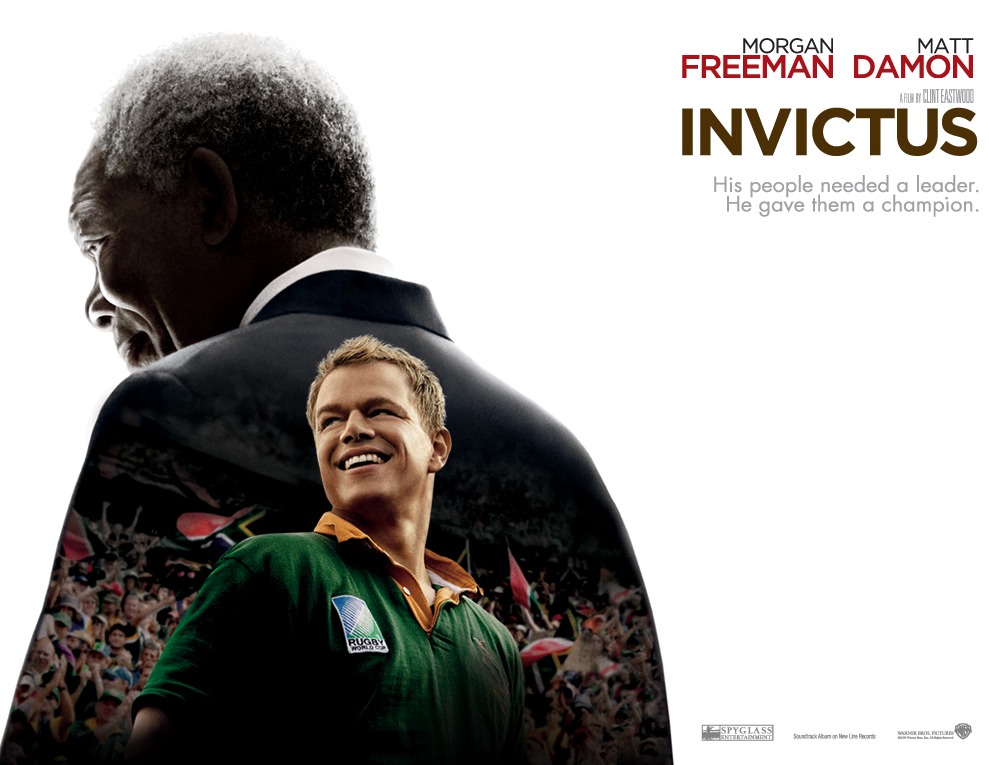
I just watched Clint Eastwood’s new film on South Africa’s victory in the 1995 rugby World Cup, one year after the country’s first democratic elections. Invictus (the title comes from an inspirational Victorian poem) stars Matt Damon as François Pienaar, captain of the Springboks, and Morgan Freeman as Nelson Mandela. Based on John Carlin’s book Playing the Enemy, it’s pretty good for a sports movie, a genre not usually associated with great cinematography.
The basics: thanks to Mandela’s stewardship, an all-white team (with one exception) goes from representing a sport synonymous with white supremacy to embodying the seemingly boundless potential of the postapartheid “rainbow nation.” There are some good moments. Like the team’s surprise visit to Robben Island prison, where the apartheid regime imprisoned Mandela and many other black activists during the country’s struggle for freedom. Props to Damon’s rugby moves, which are almost as good as his Afrikaans-inflected English, and to Freeman for closely matching Madiba’s physical movements and cadence. I enjoyed some of the sporting action as well, particularly the camera shots from inside the scrums.
Regrettably, sentimentality and cheesy music weaken the film. The lack of historical context and the refusal to develop any of the film’s characters (except Madiba) are also striking. We never get to know where the players come from, what their lives are like, and what happens to them after The Game. Same goes for the black and white bodyguards — a constituency usually at center stage only in movies such as In The Line of Fire and its ilk. While the final scenes project the fiction that 1995 transformed rugby from a white-dominated sport to a fully integrated one, the truth is much less uplifting. But then again, this is Hollywood history.
Thinking With Our Feet

On December 3-5, 2009, Toronto’s York University hosts an international conference “Global Football: History, Gender and Nation.” Inspired by the upcoming 2010 World Cup, scholars and journalists will analyze a rich set of topics, including the transnational history of the African game, the Israeli-Palestinian encounter through film and literature, Mussolini, masculinity, and football, and fan cultures in Sweden. Simon Kuper is giving the keynote address. Click here for more details about the conference.
Life, Love, and Football in Kenya
In the year of Africa’s World Cup, it’s easy to overlook the host continent’s “other” players. Take these teenage girls in rural Kenya, for example. They organize, manage, referee, and play football in the Moving the Goalposts program. But this is not just about the game. Health education and social support are vital components of Moving the Goalposts.
Parents in Kilifi District have embraced the project: “But I have one problem in my house with Mbeyu [her daughter] and this issue of football,” says the mother of one of the players. “If she comes home from the football field and they have won, we’ll hear the whole story, how she scored, we’ll all laugh, the whole house will know. . . . But if they have lost, ha, Mbeyu—she’ll be ill and the whole house will be ill! . . . If she’s lost, there no laughter in the house.” (Read more of the girls’ stories in Sarah Forde’s gripping book Playing by Their Rules.)
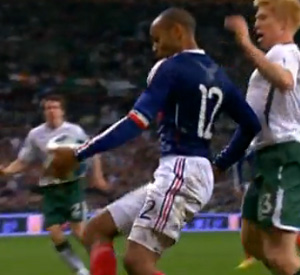
Ireland was robbed. Pure and simple. My 8-year-old daughters watched the Henry hand ball with gaping eyes. One proffered: “Just like I do in basketball!” Her sister then deadpanned: “And there was an offside on the pass.” Children have an amazing way of stating the truth, don’t they?
In his Hall of Shame acceptance speech, Thierry Henry said: “I will be honest, it was a hand ball. But I’m not the ref,” Henry said. “I played it. The ref allowed it. That’s a question you should ask him.”
